Iran Gives Millions Of Dollars To Islamic Jihad To Attack Israel - Gantz
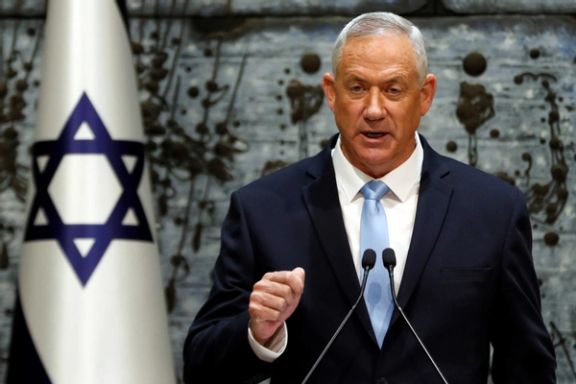
Israeli defense minister Benny Gantz said on Thursday Iran gives millions of dollars annually to the Islamic Jihad so that it can attack Israel.

Israeli defense minister Benny Gantz said on Thursday Iran gives millions of dollars annually to the Islamic Jihad so that it can attack Israel.
In a joint press conference with his Cypriot counterpart Charalambos Petrides, Gantz said the financial support is in addition to the transfer of technical intelligence for the constitution of military bases in Gaza from which to launch attacks against civilian centers in southern Israel.
"Israel will continue to act against Iran's emissaries together with our partners. We will continue to work together for the stability of the entire region," he added.
After the launch of Operation Breaking Dawn against targets in Gaza on August 5, Israeli Prime Minister Yair Lapid said that Islamic Jihad is an Iranian proxy that wants to destroy Israel, noting that Israel has a zero-tolerance policy for any attempted attacks from Gaza. The head of Islamic Jihad -- a militant outfit designated a terrorist organization by the US, EU, and UK -- was in Tehran when during the three-day operation.
Ziyad al-Nakhalah held meeting with several senior Iranian officials in Tehran including Supreme Leader's adviser Ali Akbar Velayati, Foreign Minister Hossein Amir-Abdollahian, and Kamal Kharrazi, the head of Iran's Strategic Council on Foreign Relations, as well as President Ebrahim Raisi and a number of high-ranking IRGC commander.
Tehran condemned the Israeli airstrikes on Gaza, vowed continued support and called for closer ties between the Islamic Republic and the Palestinian Islamic Jihad.
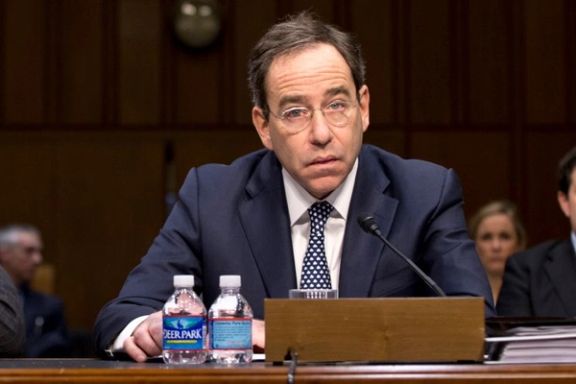
The US ambassador to Israel says “every option” is open to the US in countering the Iranian nuclear threat, as negotiations over Tehran’s nuclear program appear to be near a dead end.
In a Wednesday interview with Israel’s Channel 13, Tom Nides reiterated Washington’s full support of Israel’s right to self-defense after the latest operation against Iran-backed Palestinian Islamic Jihad, a militant outfit designated a terrorist organization by the US, EU, and UK. Iran also backs the Gaza rulers, Hamas.
“Every option is on the table, as President Biden has said. We’re not going to allow Iran to have a nuclear weapon. Every option is on the table,” Nides said of the Iranian nuclear threat.
“We support Israel’s right to defend itself, its right to basically take the actions it needs to keep this place safe, so we’re fully supportive of Israel’s actions,” the envoy said.
Israel launched airstrikes against the group on August 5, kicking off three days of fighting, before an Egyptian-brokered ceasefire came into force Sunday night. “These are bad guys,” Nides said referring to the terror groups. “We’re aware of the situation going on in Gaza. We understood this was an important mission for the Israelis.”
Earlier in the week, UK Foreign Secretary Liz Truss said that she remains committed to standing up to Iranian hostility and their pursuit of nuclear weapons.
"The UK stands by Israel and its right to defend itself. We condemn terrorist groups firing at civilians and violence which has resulted in casualties on both sides. We call for a swift end to the violence," the candidate to becomes the next UK prime minister added.
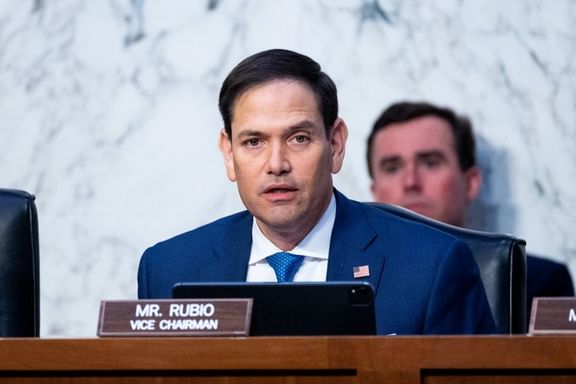
US lawmakers have criticized the Biden administration for continuing talks with Iran after revelation of Iranian assassination plots against former officials.
In a tweet on Wednesday, Florida’s senator Marco Rubio said, “Why is Biden still negotiating with Iran on a new 'deal' when he knows they are actively trying to assassinate former government officials on US soil?
While Iran rejected US accusations of a plot to kill former national security adviser John Bolton, the threat to US citizens can have an impact on nuclear talks as critics question Biden’s reasoning to continue the nuclear talks with the regime in Tehran.
Representative Claudia Tenney (Rep-NY) rebuked the administration for trying to “lift terror sanctions on the IRGC, even though it knew the IRGC was plotting to kill Americans on US soil.”
“The regime in Iran does not deserve nor should it receive a penny in sanctions relief,” she added.
Urging the administration to call off the talks in Vienna until the assassination plots end, former State Department Spokesperson Morgan Ortagus said, “Even in light of this, Biden admin “only respond once Iran kills one of our former officials.
“Iranian agents were willing to pay $300,000 to assassinate Bolton and suggested he be run over with a car or shot at short range. Iran planned worse for Pompeo. Iran offered to pay $1 million to kill him, and told their operative a 'long-range capability' was necessary.”
She stressed the need “to kick out the Iranian Interests Section in DC immediately and reimpose strict travel restrictions on Iranian 'diplomats’ in NYC.”
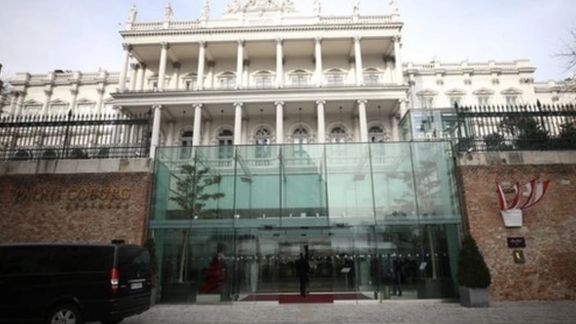
Iran's Supreme National Security Council says no high-level meeting has yet been held regarding the EU-proposed "final text" to revive the 2015 nuclear deal.
In a report on Wednesday, Nour News, a website affiliated with the secretary of Iran's Supreme National Security Council (SNSC), Ali Shamkhani, said since Tehran’s lead negotiator Ali Bagheri-Kani and his team returned from Vienna "the process of examining the ideas proposed by the European Union coordinator has started at the expert level and is still continuing."
No high-level meeting has yet been held to review the EU’s ideas in Tehran, and according to the usual procedure, after the completion of the expert review process, the preliminary results will be presented to the relevant decision-making bodies for a final decision, the report said.
On Monday, August 8, Iran’s Foreign Minister Hossein Amir-Abdollahian and the European Union foreign policy chief Josep Borrell discussed the latest round of Vienna nuclear talks, reiterating that all parties involved in the talks must take serious steps toward reaching the final text of an agreement.
Iran insists that the text offered for renewing the 2015 nuclear deal is not a final agreement but European officials described the document to journalists as a ‘take it or leave it’ offer for both sides.
Tehran demanded more drastic concessions outside the scope of the original agreement, including the closure an International Atomic Energy Agency probe into undeclared nuclear material found in three undisclosed sites.
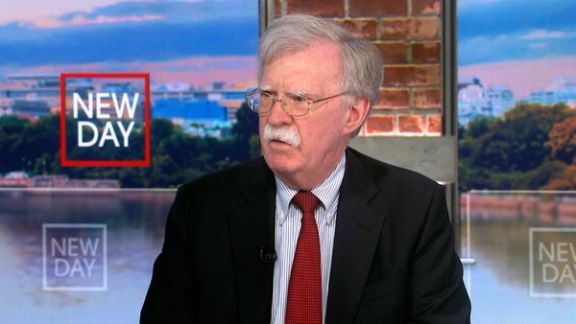
While Iran rejected US accusations of a plot to kill former National Security Adviser John Bolton, the threat to US citizens can have an impact on nuclear talks.
Bolton told Iran International that there are several American public figures who face direct threats. Axios reported Wednesday that US law enforcement have also told former Secretary of State Mike Pompeo that he is a possible target of an Iran plot.
In its denial issued immediately after an indictment was unsealed by the Department of Justice against a member of Iran’s Revolutionary Guard, Tehran accused Washington of “weaving a tale” to exert pressure in the nuclear talks.
But as the news of a serious and real threat against former and possibly current US officials sinks in, critics of reviving the 2015 nuclear deal (JCPOA) with Iran are bound to ask the Biden administration not to continue negotiations with Tehran.
Bolton himself warned in a statement on Wednesday, “Iran’s nuclear-weapons and terrorist activities are two sides of the same coin. No responsible US government should think otherwise. America re-entering the failed 2015 Iran nuclear deal would be an unparalleled self-inflicted wound…I remain committed to making sure it does not happen.”
At the same time, current national security adviser Jake Sullivan issued a statement from the White House saying, “Should Iran attack any of our citizens, to include those who continue to serve the United States or those who formerly served, Iran will face severe consequences. We will continue to bring to bear the full resources of the U.S. Government to protect Americans.”
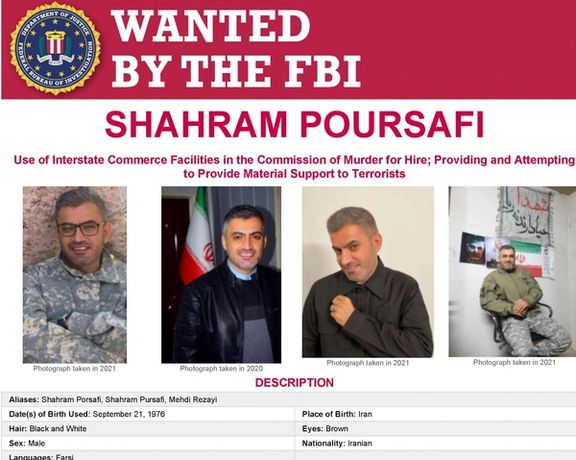
But the DOJ clearly says Iran tried to kill Bolton and many would say this is enough reason for “severe consequences”. However, Reuters quoted an unnamed US official as saying that Washington does not believe the assassination plots should affect talks the JCPOA talks with Tehran.
Republican Senator Marco Rubio tweeted, "Why is Biden still negotiating with Iran on a new “deal” when he knows they are actively trying to assassinate former government officials on U.S. soil?"
Norman Roule, a long-time senior Central Intelligence Agency official and an expert on the Middle East tweeted that the plot against Bolton “was almost certainly approved by the senior-most leadership of Iran & undertaken only after a determination that its exposure would not invite a significant response.” He added that “Iran will likely continue these operations absent swift and meaningful international actions. The failure to demonstrate deterrence risks Iran undertaking an operation that, if successful, could ignite a regional conflict.”
Kylie Moore-Gilbert an Australian-British academic who was a hostage in Iran tweeted, “Not sure how the US can claim its negotiating with Iran in good faith over a seemingly-mythical JCPOA at quite literally the same time that Iran is funding multiple terror plots that aim to assassinate US citizens on US soil.”
After 16 months of negotiations to revive the JCPOA, Iran is still considering a draft submitted by the European Union that coordinates the talks. US has said it is ready to lift the crucial economic sanctions if Iran agrees to return to the limitations set by the 2015 agreement, but Tehran wants more sanctions to be lifted.
One group of sanctions are those imposed on the IRGC and its affiliated entities for involvement in terrorism, which now seem impossible for the administration to agree to, given the DoJ indictments of an IRGC member.
A former State Department official, Gabriel Noronha, who opposes the JCPOA tweeted, “So again today, we saw Jake Sullivan with another stern warning to Iran, that only threatens consequences ONCE Iran attacks a US citizen. There would be no measures taken beforehand, just afterwards when Bolton/Pompeo are dead. This is Russia/Ukraine all over again.”
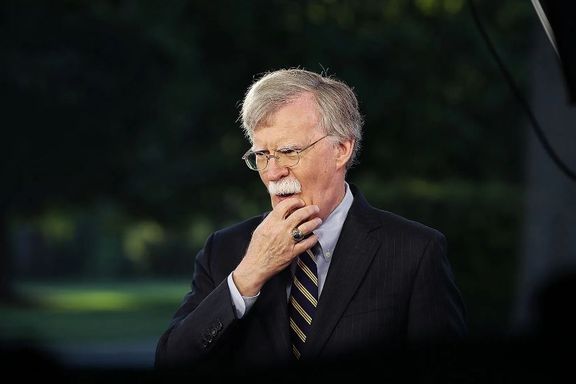
The US is not doing enough to stop the Iranian threat against former officials, John Bolton who was the target of an assassination plot told Iran International.
The Justice Department revealed on Wednesday that an operative of Iran’s Revolutionary Guard tried to hire a hitman in the US to kill former National Security Adviser John Bolton.
A statement by DoJ saidShahram Poursafi, also known as Mehdi Rezayi, 45, had attempted to pay “individuals in the United States” $300,000 to carry out the killing, “likely in retaliation for the January 2020 death of Iran’s Islamic Revolutionary Guard Corps – Qods Force (IRGC-QF) commander Qasem Soleimani.”
Bolton told Iran International Television anchor Fardad Farahzad that he was not surprised as an indictment was unsealed because he was kept informed “in general terms until late in 2021 when it was determined I would again get secret service protection.”
As the news about the assassination plot against Bolton was announced, Axios reported that DOJ also told former Secretary of State Mike Pompeo that he too was one of the former Trump officials targeted by the government of Iran.
After the US targeted killing of Iran’s Qasem Soleimani in January 2020 in Baghdad, Iran’s top leaders have repeatedly threatened revenge against Trump administration officials, including President Donald Trump himself.
Bolton said that he is aware of many ex-officials being the target of possible Iranian plots. “So, it's a very real threat, and obviously we're not doing enough to stop it because it continues,” he said, adding, “I really can't discuss names, but this is something that characterizes the regime in Tehran, and obviously the US has not done enough to deter the regime.”
Critics of the Biden administration say that with this kind behavior by Iran, the United States should stop making deals with Tehran and promising to lift sanctions that would give the Iranian government tens of billions of dollars in cash and economic benefits.
However, Reuters quoted an unnamed US official as saying that Washington does not believe the assassination plots should affect talks with Tehran on reviving the 2015 nuclear deal, known as the JCPOA.
Asked if he thinks the issue of Iranian threats to US citizens should be raised in the JCPOA talks, Bolton said, “I think that was really part of the fundamental flaw of the 2015 nuclear deal, the idea that the Ayatollah Khamenei had two brains: one brain was the nuclear brain, the other brain was the terrorist brain. He doesn't. It's all part and parcel of the same thing. So fundamentally the nuclear deal was not going to deal with the terrorist issue.”
Bolton went on to say that “In fact, what we see now is that this regime has no intention whatever to comply with any commitments that it makes. It's untrustworthy, it's clearly an enemy of the US. That's what these threats of assassination show.”
Asked if from the benefit of hindsight, he would still support Soleimani’s killing, the former national security adviser said, “Soleimani was a terrorist,” and argued that the Islamic Republic has been threatening and killing Americans since its establishment in 1979, not just after Soleimani’s killing.
“So yes, their threat has been growing, but it's been growing for a long period of time. This is a dangerous, untrustworthy regime.”